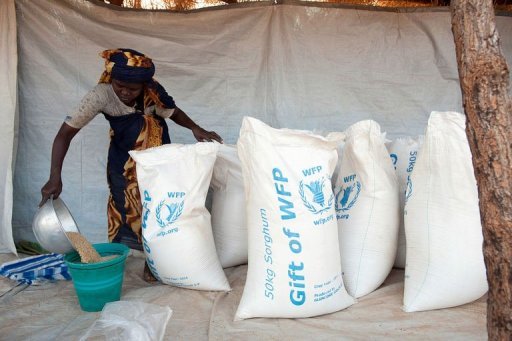People are Dying While the Politicians are Talking
As negotiations are slowly underway in the Ethiopian capital of Addis Ababa, humanitarian crises worsen. Internally displaced persons in camps in Jebel Marra in North Darfur, have no aid or relief access. Also spiked water shortages in Zam Zam camp are leaving displaced people without water. The local authority have reduced the fuel quota for water stations manned by UNICEF and at other privately owned stations. The crisis has increased the price of a barrel of water to 10-12 Sudanese pounds inside the camp, and aggravated long queues in front of the eight UNICEF stations, which are only operating for three hours a day. People in Kokaya in East Darfur have also been suffering water shortages for the month following the failure of the only water station in the area. A citizen of the area told Radio Dabanga that the lack of water has killed livestock including donkeys and cows. Meanwhile, Tolom refugee camp in eastern Chad has been suffering from a lack of water for the past four days after a pump stopped working, leaving 25,000 people without access to drinking water. Also shortages of drinking water in Seraf Umra, Dankoj and El Nasim camps for internally displaced people is getting worse as pumps are failing and other stations have reportedly been sabotaged by unknown groups. As if things couldn’t get any worse, there is also a famine threat in the Nuba Mountains with thousands left without access to food, water, and assistance.
Meanwhile, the peace talks between Sudan and South Sudan are said to be yielding slow progress despite reports of fresh clashes on the ground and questions about Sudan’s withdrawal from the disputed Abyei region. Tensions were high as the latest round of negotiations opened with a South Sudanese demand for sanctions against Khartoum.
“The government of Sudan did not withdraw from Abyei within the two weeks as required. This is a violation. We also asked the representative of United Nations to report this violation, and this non-compliance by the republic of Sudan, and we expect Sudan to suffer sanctions and measures from the Security Council as promised.” South Sudan’s Chief Negotiator, Pagan Amum.
Although recent negotiations are a great cause of celebration and progress between the two countries, my concern is with the dire need of the people on the ground who are facing humanitarian crises and water shortages everyday. I hope the leaders and mediators spend each day of negotiation wisely, realizing that with every day passing, humanitarian conditions are worsening.
Powered by WPeMatico
